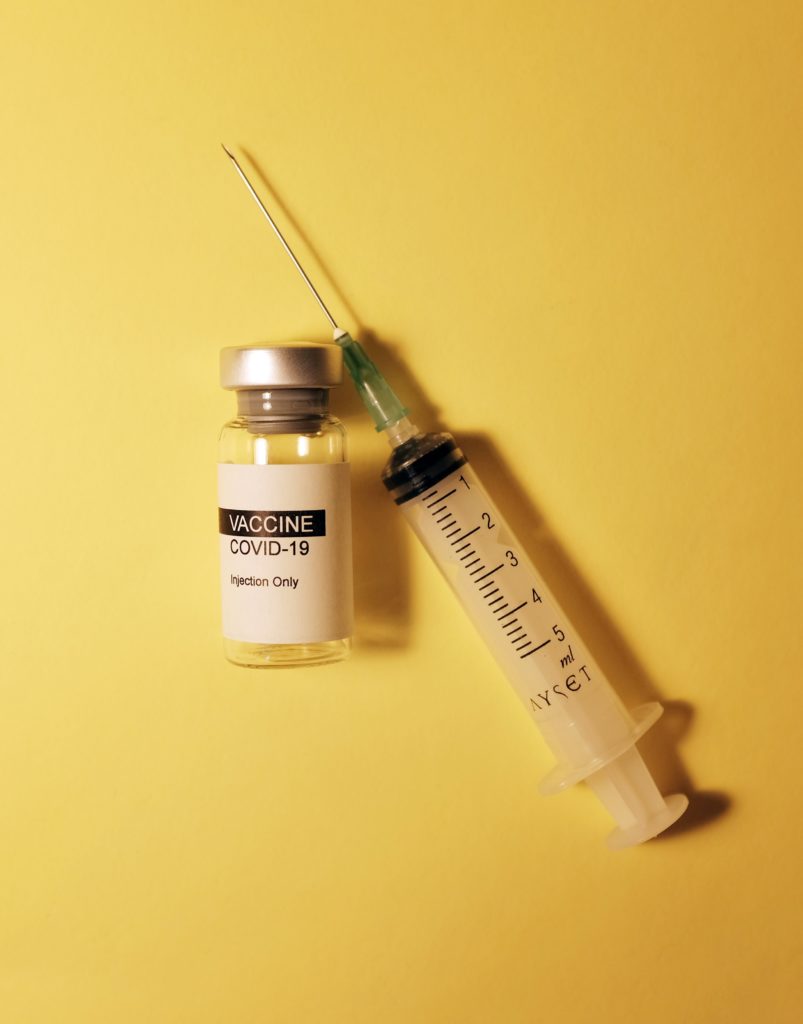A new large-scale study shows that a quarter of the UK adult population has a potential injection phobia, and these individuals are twice as likely to be put off getting a COVID-19 vaccine.

The study indicates that if all injection anxiety in the population was removed, just over 10 per cent of instances of vaccine hesitancy might disappear too.
Researchers from the University of Oxford, funded by the NIHR Oxford Biomedical Research Centre (BRC) and the NIHR Oxford Health BRC, asked a representative group of 15,014 UK adults in the third Oxford Coronavirus Explanations, Attitudes, and Narratives Survey (OCEANS-III) to rate their anxieties about needles and blood, and asked them about their willingness to receive a COVID-19 vaccine.
The results concerning injection fears are published today in the journal Psychological Medicine.
Study lead Professor Daniel Freeman, of the University of Oxford’s Department of Psychiatry, said: “For people with injection phobia the sight, say, of a hypodermic needle will prompt an initial increase in heart rate and blood pressure. This may be swiftly followed by a sudden decline in both. When that happens, some people faint. The COVID-19 vaccination programme means that almost everyone has had – or will soon have – to face the needle. People may certainly think twice about joining a queue for a vaccine if they fear that they might topple to the ground.”
Typically, people who are vaccine hesitant cite concern about the safety of the vaccines and scepticism about the seriousness of COVID-19. What the survey makes clear now, however, is that fear of the needle may also be playing a part.
The survey also showed that COVID-19 vaccine hesitancy is a little higher among younger people and certain ethnic minority groups, but it is not only vaccine scepticism that’s more common in these groups: it is injection fears too. This is not coincidental. The study shows that, though they’re certainly not the main factor, injection fears partially account for higher rates of vaccine hesitancy in these demographic groups.
Professor Freeman continued: “When it comes to controlling COVID-19, every vaccination counts. There is much that can be done to help people overcome their fear of needles. Cognitive behavioural therapy is typically fast and effective – and can even be successfully given in group sessions. Treatment involves gradual exposure to needles and injections, beginning with simply showing pictures and videos. Fainting can be tackled too. Patients can be taught how to recognise the early signs of a dip in their blood pressure and to combat this drop by applied muscle tension.”

Professor Helen McShane (left), Director of the Oxford BRC and a Professor of Vaccinology, highlighted that: “There are many different reasons for why people are hesitant about receiving a vaccine. A fear of needles is a significant factor in up to 10% of people who are vaccine hesitant. Whilst needle-free routes of vaccination, such as via the nose, are being explored, at present the only approved routes of vaccination for COVID-19 vaccines are by injection. Understanding the underlying causes of this helps us address specific interventions that ultimately will increase vaccine uptake.”
Professor Andrew Pollard, Director of the Oxford Vaccine Group and Co-theme Lead of the Oxford BRC’s Vaccine Theme, said: “The coronavirus as a public health threat remains with us, and those who are unvaccinated will continue to be at risk. Strategies to address protection for the unvaccinated are urgently needed, including getting access to vaccines for those without it and addressing fears and concerns of those who decline.”
The Oxford Coronavirus Explanations, Attitudes, and Narratives Survey (OCEANS III) was conducted between 19 January and 5 February 2021 with 15,014 UK adults, quota sampled to match the population for age, gender, ethnicity, income, and region.